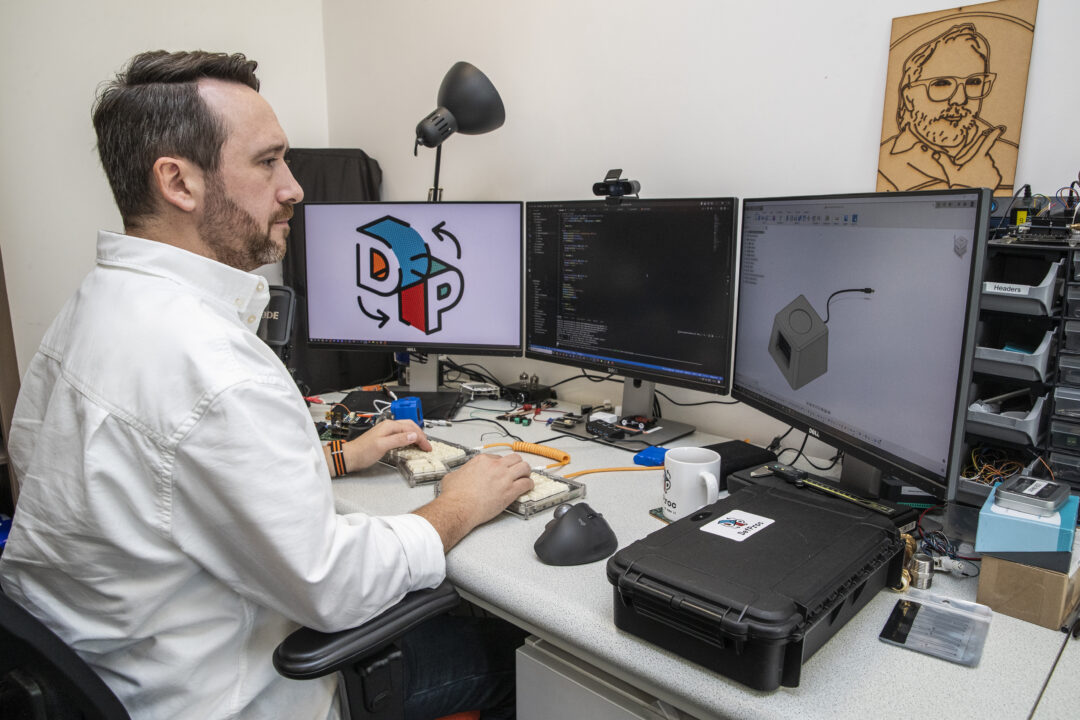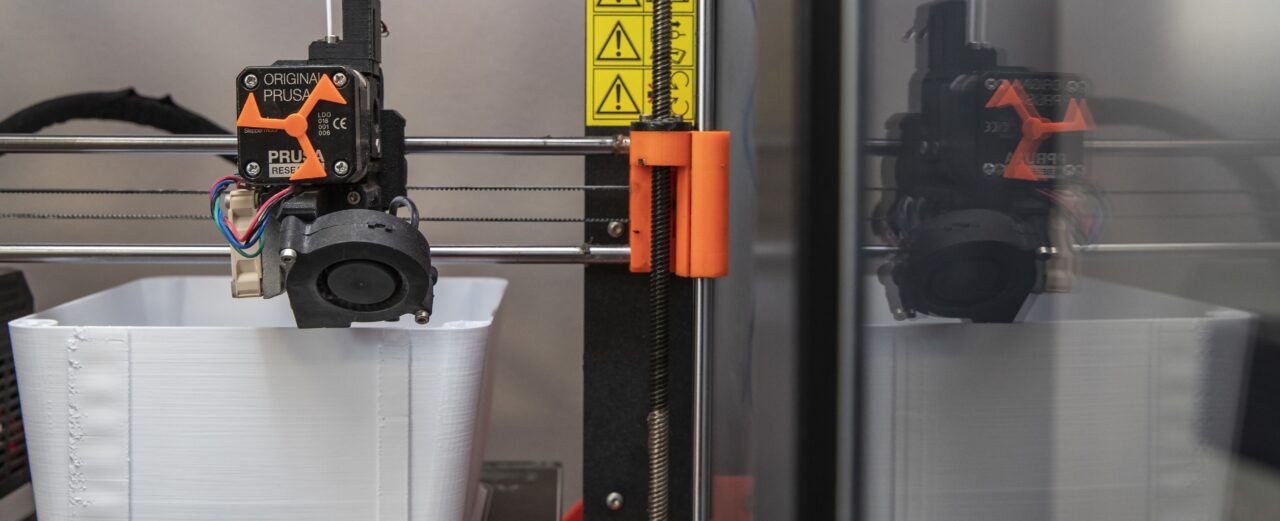In November 2022, DefProc Engineering was awarded an Innovate UK Fast Start grant to create a Smart Uninterruptible Power Supply (SmUPS) to support energy security for the deployment of virtual beds in the UK. The project is a collaboration between DefProc and the Liverpool 5G Create Connecting Health and Social Care project, funded by the UK Department for Culture, Media and Sport (DCMS). Telet Research, Docobo, Liverpool City Council and the local NHS are also partners in this project.
Project Background
Over the coming years, the number of digital health services in the UK is set to increase. These services include telehealth, telecare and virtual wards. Currently, there are 2 million telecare users in the UK, and this is expected to rise to 3 million by 2030 (FarrPoint 2022). In its Digital Health and Social Care policy paper, the government has also outlined its ambition to have 40 to 50 virtual ward ‘beds’ per 100,000 of the population by March 2024.

Co-founder and Head of Engineering Patrick Fenner reviewing the SmUPS CAD
Although increasing digital connection will help the NHS better manage long-term health conditions, there is a service vulnerability around the electrical supply for remote healthcare network resilience in service users’ homes. When a search for a suitable off-the-shelf Customer Premises Equipment (CPE) device or battery backup solution failed, DefProc Engineering was asked by Liverpool 5G Create to look at the feasibility of developing a solution for deployment in users’ homes.
What is a Smart Uninterruptible Power Supply?
SmUPS is a brand-new device and monitoring system. It integrates power monitoring with virtual ward service providers, supplying up to 18 hours of power backup.
The device is a one-box, plug-and-play solution to monitor and provide power to a CPE – the router that provides the internet connection to the remote healthcare devices – for use in a patient’s home. It will supply up to 18 hours of power in the event of an outage from its internal battery. The battery will recharge once the power supply returns, allowing repeated protection. SmUPS will also monitor the mains power supply and battery capacity and calculate the remaining time on the battery. These metrics will be available on an easy-to-use dashboard for operational support staff. Staff are alerted to problems ahead of losing connection so they can contact patients and ensure they receive continued service.

3D printing the SmUPS housing
The device operates fully without any connectivity requirements. It is deployed without requiring on-site configuration, making it fit for purpose in a patient’s home.
Projected impact
SmUPS will significantly impact the telehealth services industry in the UK, offering positive outcomes for both the marketplace and end-users.
Healthcare
The telehealth services industry in the UK has expanded at an average annual rate of 19.8% from 2017 to 2022. By 2022, the industry’s revenue had reached £585.6 million, reflecting a dynamic market landscape [IBIS World].
The COVID-19 pandemic in 2020 accelerated the adoption of digital health services. This led to an increased utilisation of virtual healthcare solutions, alleviating the strain on frontline healthcare staff. Many healthcare organisations have embraced virtual wards for monitoring patients with conditions such as COPD, hypertension, respiratory infections and frailty. SmUPS will broaden the reach of self-care services, ensuring that all socio-economic groups can access healthcare at home.
SmUPS also aims to enhance the reliability of digital health services. Providing a device that can maintain an internet connection during power outages addresses a critical challenge in the healthcare sector. As healthcare services increasingly rely on in-home digital infrastructure, the uninterrupted connectivity offered by SmUPS ensures continuous care delivery, benefiting patients and healthcare providers alike.
End-users
The projected benefits for end-users are substantial. As of 2023, around four million people in the UK have a prepayment energy meter (PPM) [Ofgem]. The number of customers with PPMs whose electric supply was cut off (known as self-disconnection) at least once for more than three hours increased by 25% to 269,351 in the first three months of 2023 [Ofgem]. SmUPS is a safeguard against power disconnection, which can be detrimental to a person’s health, particularly those with long-term conditions. A report by Citizens Advice in 2018 found that 41% of all PPM customers reported health issues, including 15% reporting mental health issues.
The prevalence of long-term illnesses such as diabetes, COPD and hypertension is higher among adults from lower socio-economic backgrounds [Hidaya Aliouche, B.Sc., 2021]. SmUPS’s ability to ensure continuous power supply for telehealth, telecare, and virtual ward services directly contributes to the safety and security of individuals most susceptible to power loss, providing a valuable lifeline in times of need.
PSTN switch-off
Additionally, SmUPS will prove critical after the analogue telephone (PSTN) switch-off in 2025. For many years, providers such as Tunstall Healthcare have been providing telehealthcare services via analogue telephone connections. Currently, the analogue connection has line power separate from the household supply. However, after the switch-off, all connections will become digital. This means that telehealth and telecare devices will lose connection in the event of a local power cut.
As the telehealth industry evolves, SmUPS will become a pivotal part of reliable digital health services.
What’s next for the project?
The project is currently at Technology Readiness Level 6 (TRL). We have tested our prototype in-house; the next step will be trialling the device in a virtual bed setting (TRL7).

SmUPS has also been shortlisted for The Engineer’s Collaborate to Innovate Award in the Healthcare & Medical category. Stay up to date with the latest news by following us on LinkedIn and connecting with our founders Patrick and Jen.

